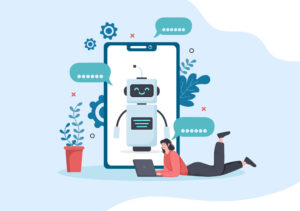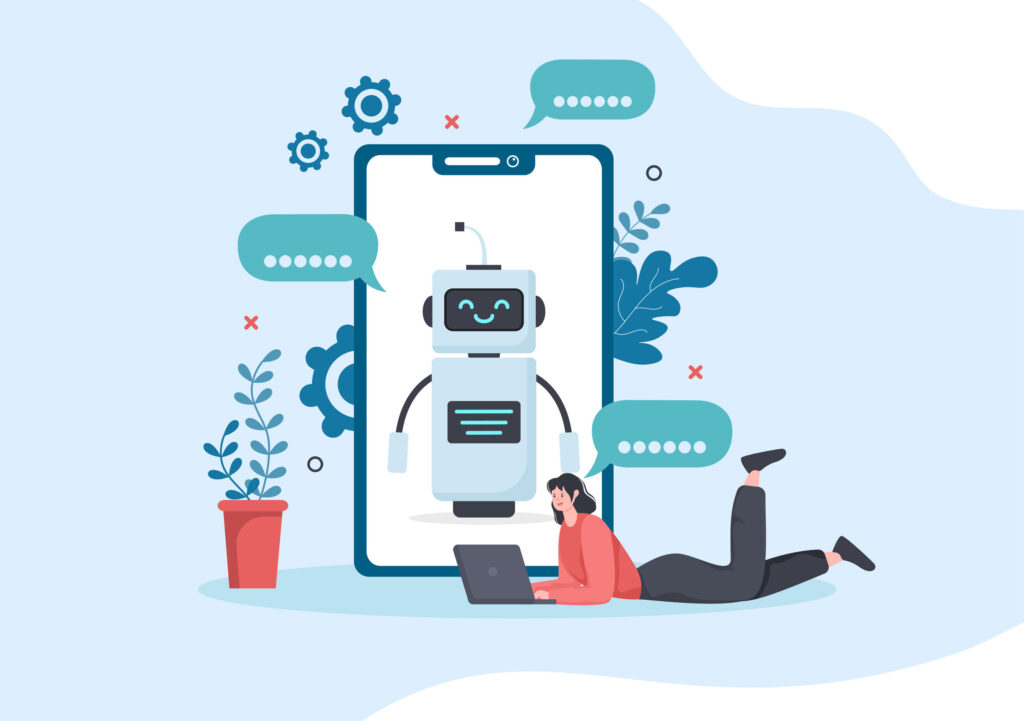
Artificial intelligence (AI)-driven chatbots have transformed the way B2B organizations interact with prospects and customers. These automated conversational agents use AI to interact with clients in real time. Earlier versions of these tools used limited scripts to formulate standard responses, leaving much to be desired in user satisfaction. Modern chatbots utilize advanced natural language processors and machine learning (ML) to be more context- and intent-aware, tap into past interactions, and predict future needs.
The chatbot market is expected to reach over $15 billion by 2028. As digital transformation continues to gain momentum, consumer demand for 24/7, personalized service will steadily increase. Chatbots offer an easily scalable opportunity for B2B organizations seeking to streamline operations, deliver timely support, and enhance customer experiences.
Chatbot Advantages and Challenges
AI chatbots provide numerous benefits to B2B customer service, including:
-
24/7/365 responsiveness.
AI chatbots provide around-the-clock support, ensuring users in different time zones receive service whenever they need it.
-
Instant response to routine queries.
Effective chatbots handle common inquiries quickly, freeing up human agents to focus on more complex cases.
-
Personalized interactions.
By integrating with CRM systems and client data, chatbots can tailor responses based on individual customer profiles and past behavior.
-
Ease of scalability.
Chatbots can manage increasing volumes of inquiries without requiring a proportional rise in staffing costs.
-
Valuable data and insights.
Every interaction contributes to a growing database of customer behavior and preferences. These insights help companies improve service over time.
Despite their benefits, chatbots have inherent challenges. For example, integrating chatbots with legacy CRM, enterprise resource planning (ERP), and customer service platforms requires specialized technical know-how. It’s also vital to maintain chatbot-gathered knowledge bases to keep responses accurate. Additionally, efficient transfer management of chatbot conversations to human representatives is critical.
Organizational obstacles can arise when seeking internal buy-in. As such, it’s vital to address fears that bots will replace humans. Setting realistic expectations for what the chatbots can and cannot mitigate these issues. It is imperative to train individuals to work alongside AI and escalate situations accordingly. For ethical considerations, transparency with customers is essential. B2B organizations can make it clear when customers are conversing with a chatbot and reassure them that their sensitive information is secure.
Implementation and Deployment
Successful chatbot implementation requires alignment with broader digital transformation goals. This approach supports operational efficiency, agility, and stronger client relationships by reinforcing the brand’s commitment to innovation and excellent customer service. As part of successful implementation, it’s important for leadership to foster a culture that embraces AI as a tool to enhance service, not to replace human agents.
Starting with a pilot program targeting low-risk client interactions helps companies identify where the chatbot model excels and needs improvement before full deployment. Decision-makers who prioritize seamless integrations and build clear escalation protocols increase the initiative’s likelihood of success. Once chatbots are deployed, continuous refinement through client feedback and data analysis is key.
Chatbots Create a Competitive Advantage

Companies that strategically implement chatbots not only improve service responsiveness but also gain deeper insights into client behavior. This enhanced understanding of target audiences helps brands strengthen their competitive position in the marketplace. While AI chatbots are not a cure-all, overlooking these tools means falling behind in B2B service. Successful chatbot integration isn’t just about introducing a new technology. It’s a strategic approach to delivering exceptional customer service by adding value to customer interactions and building the loyal relationships that are the foundation of long-term profitability.

